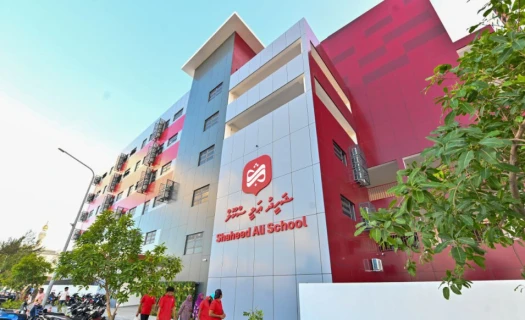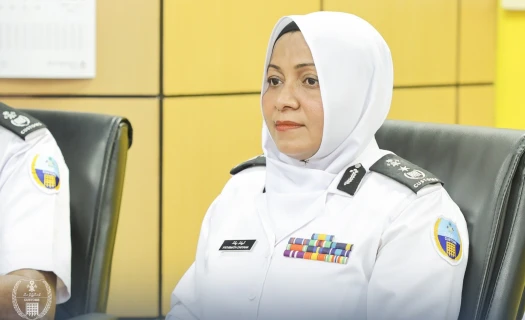Mon, 26 Jan 2026
|DHIVEHI
Farah Faisal criticises MDP Chairperson for controversial comments about President Dr Muizzu
10 Dec 2024
|

Farah Faisal
Farahnaz Faisal, the former Maldivian High Commissioner to the United Kingdom, has criticised the Maldivian Democratic Party (MDP)’s Chairperson and former Economic Minister, Fayyaz Ismail, over his contentious remarks about President Dr Mohamed Muizzu.
In a post on her X account, Farah emphasised that Islam unequivocally prohibits extrajudicial killings under any circumstances, asserting that no justification could ever warrant such actions.
Her comments follow a recent statement by Fayyaz in response to a journalist's question, where he implied that President Dr Muizzu might face a fate similar to that of the late President Mohamed Amin Didi. Farah questioned whether this stance reflected the official position of the MDP, a party that once championed human rights. If so, she noted, it was no longer the party she once knew.
The reference to Mohamed Amin Didi carries profound historical significance. Renowned as a progressive leader, historian, writer, and the first President of the Maldives following the abolition of the centuries-old Sultanate, Amin Didi met a tragic and unjust fate.
He introduced the concept of nationhood to the Maldives and worked tirelessly to modernise the country, advocating for advancements in women's rights and education. However, he became the victim of a violent uprising driven by power-hungry factions. Amin Didi was publicly tortured and ultimately died in banishment on Vihamanafushi, a harrowing chapter in Maldivian history.
Despite his groundbreaking contributions, his life was cut short in a brutal act of betrayal, leaving an indelible mark on the nation’s history. Today, he is honoured as a visionary leader whose efforts laid the groundwork for a more equitable society.
Farah’s criticism brings into focus broader questions about the state of political discourse and accountability in the Maldives. The incitement of violence under the pretext of public interest ought to be condemned, and public awareness needs to be created against the dangers of normalising such rhetoric in an Islamic society that prides itself on peace and harmony.
Her post invokes verses from Surah Al-Ma’idah (5:32–33), which denounce unjust killing:
"Because of that, We decreed upon the Children of Israel that whoever kills a soul unless for a soul or for corruption [done] in the land - it is as if he had slain mankind entirely. And whoever saves one - it is as if he had saved mankind entirely. And our messengers had certainly come to them with clear proofs. Then indeed many of them, [even] after that, throughout the land, were transgressors."
Farah’s remarks also challenge the MDP’s commitment to human rights, raising the question whether these principles apply universally or selectively.
It is time the public reflects on whether politicians should be allowed to incite violence with impunity.
The controversy surrounding Fayyaz’s remarks highlights the need for measured and responsible discourse, particularly in a nation grappling with its historical wounds. Calls for bloodshed, regardless of their justification, undermine the values of justice and humanity that form the foundation of Maldivian society.
As Maldivians continue to honour the memory of visionary leaders like Mohamed Amin Didi, the nation must strive to learn from its past and ensure that political debates remain rooted in respect, peace, and constructive dialogue.








